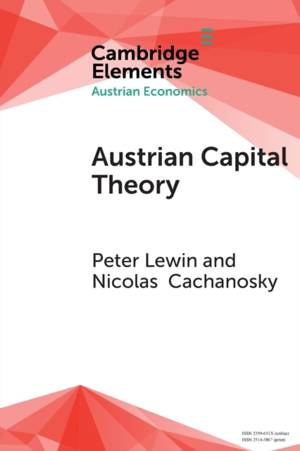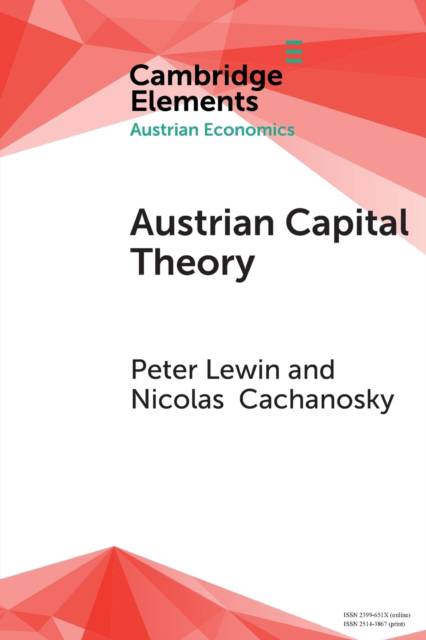
- Afhalen na 1 uur in een winkel met voorraad
- Gratis thuislevering in België vanaf € 30
- Ruim aanbod met 7 miljoen producten
- Afhalen na 1 uur in een winkel met voorraad
- Gratis thuislevering in België vanaf € 30
- Ruim aanbod met 7 miljoen producten
Zoeken
€ 37,45
+ 74 punten
Omschrijving
This Element presents a new framework for Austrian capital theory, starting from the notion that capital is value. Capital is the value attributed by the valuer at any moment in time to the combination of production-goods and labor available for production. Capital is the result obtained by calculating the current value of a business-unit or business-project that employs resources over time. It is the result of a (subjective) entrepreneurial calculation process that relates the flow of consumptions goods to the value of the productive resources that will produce those consumptions goods. The entrepreneur is a ubiquitous calculating presence. In a review of the development of Austrian capital theory, by Carl Menger, Eugen von Böhm-Bawerk, Ludwig von Mises, Friedrich Hayek, Ludwig Lachmann as well as recent contributions, the Element incorporates the seminal contributions into the new framework in order to provide a more accessible perspective on Austrian capital theory.
Specificaties
Betrokkenen
- Auteur(s):
- Uitgeverij:
Inhoud
- Aantal bladzijden:
- 90
- Taal:
- Engels
- Reeks:
Eigenschappen
- Productcode (EAN):
- 9781108735889
- Verschijningsdatum:
- 10/01/2019
- Uitvoering:
- Paperback
- Formaat:
- Trade paperback (VS)
- Afmetingen:
- 152 mm x 229 mm
- Gewicht:
- 131 g

Alleen bij Standaard Boekhandel
+ 74 punten op je klantenkaart van Standaard Boekhandel
Beoordelingen
We publiceren alleen reviews die voldoen aan de voorwaarden voor reviews. Bekijk onze voorwaarden voor reviews.







